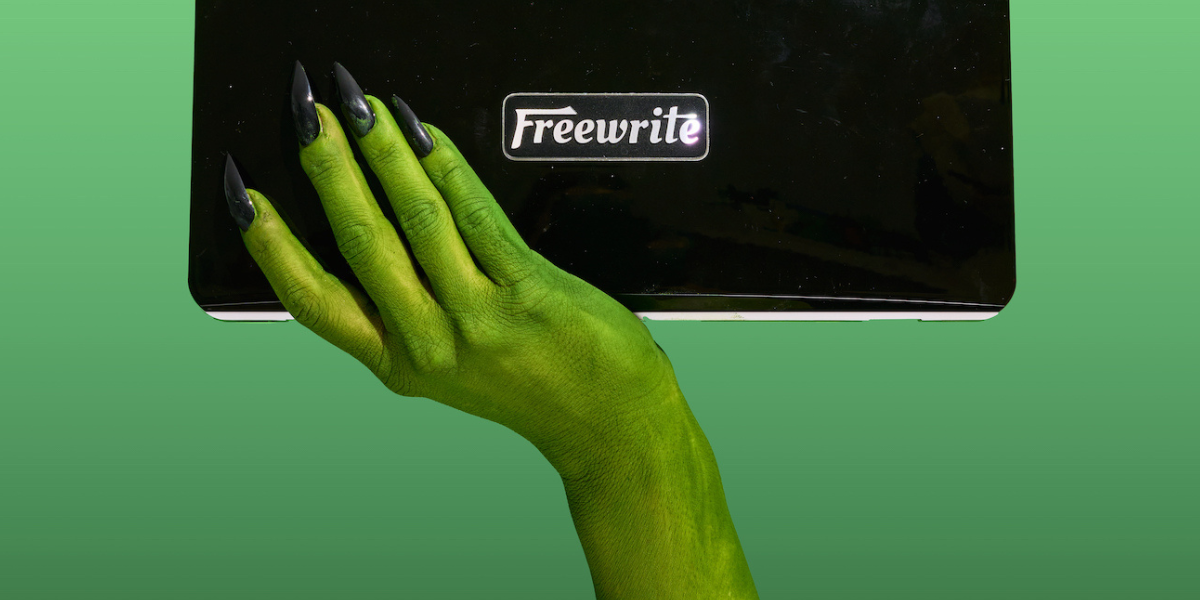In 2023, romance novels generated over $1.44 billion in revenue, making it the highest-earning fiction genre.
While romance as a genre has been successful for decades, the past few years have seen an explosion in sales. There were 39 million printed copies of romance books sold in the 12 months before May 2023, which is a 50% increase from the previous year.
So what’s behind this publishing hurricane?

The Digitization of Romance
"Open-door romance," or "smut," is a genre of novels that contain explicit, on-page sexual scenes in addition to their plotlines. “Erotica” describes books almost entirely made up of explicit scenes with minimal plot or additional details. (Those definitions will be important later. Got it?) These two subcategories are dominating the industry at the moment — for several reasons.
First, consider the expanding reader spaces online, which have attracted younger readers. The romance genre’s primary readers used to be aged 35-54, but it has now dropped to 18-44. Thanks, BookTok and Bookstagram!
Additionally, the world’s gone digital, and publishing is no exception. While printed smut and open-door romances have existed since antiquity, in the past few years, the shift towards eBooks, eReaders, and Amazon’s Kindle Unlimited has driven a massive rise in the availability of open-door romances. Yet “smut” is still sometimes used as a derogatory term.
(The word “smut” is a 16th-century word!)
Readers of romance books (including all subgenres) have always been primarily female and typically subject to stereotypes and ostracization. Think: the lonely cat lady stereotype. But over the past few years, as women have picked up their Kindles and found spaces to connect, they’ve reclaimed the word “smut” and now proudly wear it on merchandise — from shirts to mugs to bookmarks that read “Smut Scholar” or “Spicy Book Lover.”
In short: the internet has quickly and vastly destigmatized open-door romances, even if traditional publishers still quickly disregard them.
At the forefront of this growth are the primarily female authors who publish independently — colloquially and affectionately referred to as “indies.”
Some of these authors are pulling in large sums, gathering swaths of avid fans, and turning the traditional literary world on its head. While more conventional players in the publishing industry continue to turn up their noses, these indies are laughing all the way to the bank – and taking readers with them.
While more conventional players in the publishing industry continue to turn up their noses, these indies are laughing all the way to the bank – and taking readers with them.
The Finances of Smut
As open-door romance has evolved from being considered “taboo” to trendy, the rise of digital platforms and self-publishing has made it possible for writers and readers to create and enjoy what they love, without barriers.
Alessa Thorn is a paranormal and urban romance author who features open-door content in all her novels. Thorn has published over 30 books since starting her career during the pandemic, has amassed millions of page reads (an eBook metric on Amazon’s KDP platform), and thousands upon thousands of positive reviews. And she’s entirely self-published.
“The rise of self-publishing helped the genre explode,” she says. “Before, there were very few publishing houses interested in publishing [explicit romances]. Romance genres like erotica or even paranormal were barely acknowledged by the industry. Self-publishing gave writers and readers of the genre a place to make their own, and it has proven over and over again how hungry readers are for these types of books.”
Thorn is a full-time independent author now, only a few short years after launching her career. She attributes self-published book sales and the eBook market to most of her revenue stream, and also uses the author platform Ream to publish serials.
Similarly, C. Rochelle, a popular sci-fi and paranormal romance author, credits her career entirely to digital platforms.
“Personally, [they have] allowed me to publish at all!” Rochelle says. “My grandfather died with binders of unpublished stories because he couldn’t get a publisher to bite. I’ve watched my husband try to get an agent for years. I saw no need to wait for someone else to deem my stories worthy.”
“My grandfather died with binders of unpublished stories because he couldn’t get a publisher to bite. I’ve watched my husband try to get an agent for years. I saw no need to wait for someone else to deem my stories worthy.”
Fighting the Stigma
Although many readers and writers have been reclaiming the word “smut,” some of the old stigma still exists.
Authors have been targeted with smear or hate campaigns, with some “clean romance advocates” intentionally misrepresenting open-door romance books and making false claims that these books feature illegal content. Karina Halle, a USA Today bestselling author of explicit romances, recently came under attack on social media.
Angry users falsely promoted one of her books as a “pedo book” to get the book banned and have Halle “canceled.” The broader book community widely supported Halle, as the accusations were grossly inaccurate, but sufficient damage was done, and Halle was forced to contact her attorney.
Almost every author who writes open-door romances has encountered this kind of stigma to varying levels of severity.
Thorn noted that while the industry has changed over the years and smut has become more openly acceptable, being a self-publisher in any genre is still stigmatized. “I learned to laugh it off because I understand the people who criticize it rarely have any concept of what it is.”
Although many readers and writers have been reclaiming the word “smut,” some of the old stigma still exists.
The Female Quotient
Above all else, open-door romance is a thriving publishing genre dominated by women. Like many female-oriented careers and pursuits, these stories face unequally yoked criticism compared to their male counterparts.
Many female authors who write paranormal or fantasy romance that includes open-door scenes are incorrectly labeled “erotica” writers. While there is nothing wrong with the erotica genre, it’s not the same as fantasy and paranormal romance and this misclassification ultimately leaves readers confused and affects authors’ careers. Meanwhile, George R. R. Martin has never been mislabeled as an erotica writer, even though he writes fantasy novels with explicit sex scenes.
In other words: when women are behind the pen, the purview of their work tends to be limited to sexual content.
“One of the biggest draws of the genre is that it allows women a safe place to live out their fantasies and explore,” Thorn says. “Reading these kinds of stories can help heal trauma done by purity culture, bad partners, and sexual abuse. It can be incredibly empowering to read stories about women who take control of their pleasure.”
Rochelle noted that romance itself is an empowering genre. “Add in spice – explicit spice at times – and it’s revolutionary. It’s a clear message that authors and readers get to decide relationship dynamics, kinks, and sexual orientations, as opposed to following the supposed rules and expectations of a patriarchal and puritanical society.”
And I agree. The readers and writers of open-door romances are redefining a legacy of explicit content that goes back to antiquity. Except this time, they’re reshaping it in their image and shattering the expectations of society, all while making money and having fun doing it, too.
The readers and writers of open-door romances are redefining a legacy of explicit content that goes back to antiquity. Except this time, they’re reshaping it in their image and shattering the expectations of society, all while making money and having fun doing it, too.
“There is nothing more terrifying for some than women who are sexually empowered and sharing stories,” Thorn said.
From the old-fashioned spinsters and single cat ladies to the Kindle readers of today, romance writers and readers have always been radicals. They’re not slowing down any time soon — and they’ve got the sales numbers to prove it.
Watch this genre over the next few years as it continues to evolve and champion radical inclusive values in our society — the door is open, after all.
























